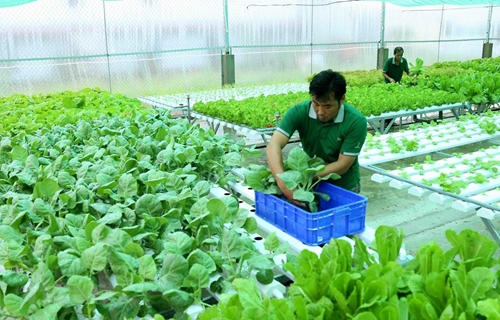According to Vitoon Panyakul, Chairman of the ASEAN Organic Federation, the agency will introduce the organic standards at Biofach Southeast Asia 2019 and Natural Expo Southeast Asia 2019 from July 11-14 in Nonthaburi.
    |
 |
|
Common standards for organic products will be built to reduce production costs and improve supply chain management. (Photo for illustration) |
The Federation represents six major organic-producing countries in Southeast Asia, including Indonesia, Cambodia, Malaysia, the Philippines, Vietnam and Thailand.
Local media quoted Vitoon as saying that organic-producing countries in ASEAN still have different standards for organic crops, livestock, aquaculture and processed food.
The same organic standards in ASEAN will improve supply chain management and reduce production costs of the regional countries, he said.
Total area of organic cultivation land in ASEAN is estimated at 4,800 sq.m. Almost ASEAN member countries, excluding Malaysia and Singapore, are producers of organic products for export.
Vitoon said ASEAN countries should altogether produce fewer mass organic products and make better-quality organic products.
He noted that ASEAN organic production still faces challenges, including weak supply chain management and a lack of integrated promotion.
Climate change from global warming, the long dry spell and higher labour costs also have an impact on organic agricultural production.
Consumers are still confused about organic products because of too many food labelling schemes such as safe conventional agriculture, good agricultural practice, pesticide-free agriculture, hygienic food, pesticide safe and organic, he said, adding that the same organic standards in ASEAN will help address this confusion.
Source: VNA